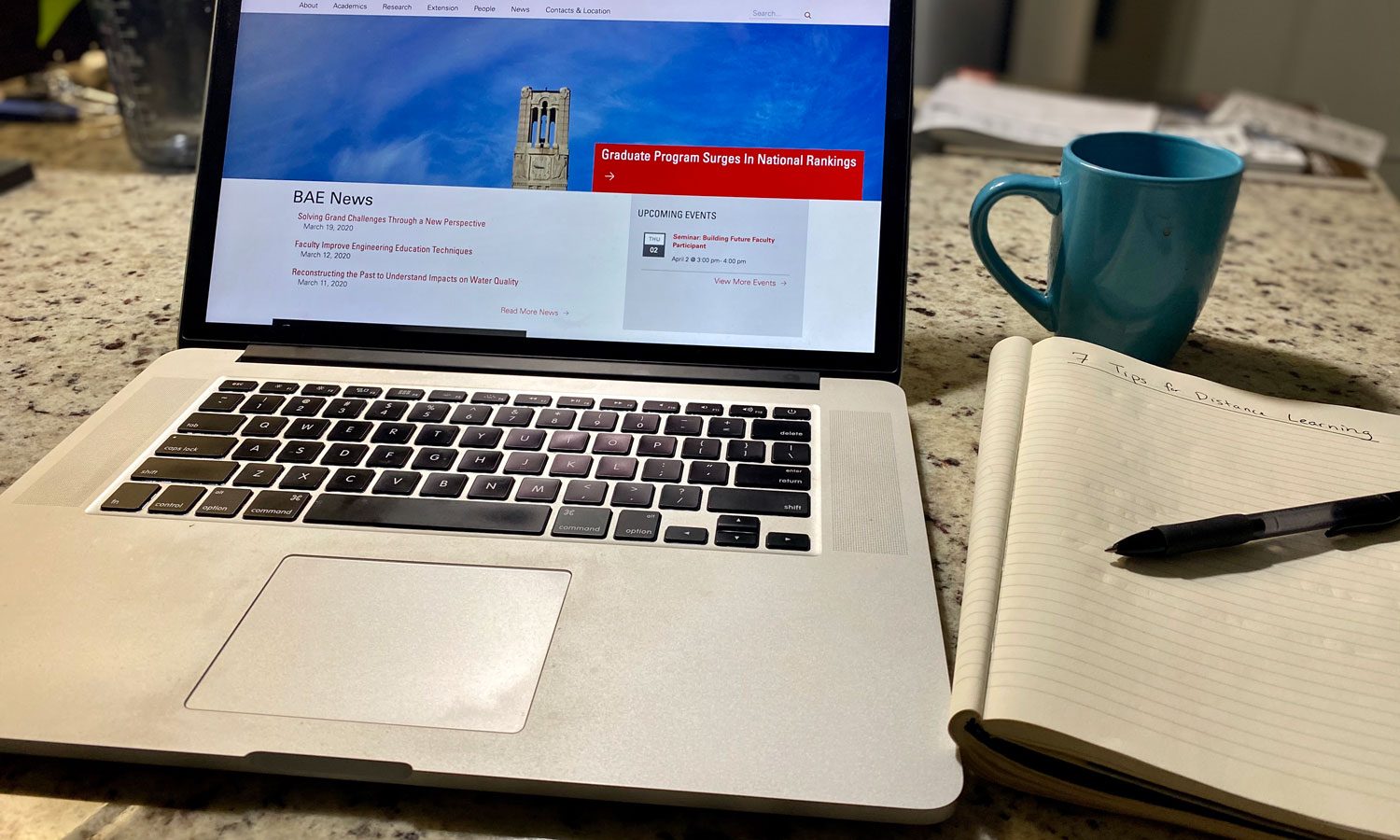By rebecca nagy
As learning shifts from on campus at NC State to the online environments, students may find themselves facing obstacles unique to this new situation. Fortunately, distance students
Students in the Master of Biological and Agricultural Engineering (MBAE) program take all of their classes online. The program is intended for working professionals who seek advanced study beyond the undergraduate level but are not interested in pursuing a career in research.
Well versed in online learning, MBAE students offered their advice to their peers on making the most of learning in an online environment.
 Jon Stephens
Jon Stephens
Stormwater Maintenance and Inspection Supervisor for NC State University
Advisor: Steven Hall
What advice would you give to students transitioning to online learning?
Most of my class material has been on NCSU’s Wolfware/Moodle site. That has made it very easy to find everything and keep up with the work because it is all in one place. The best advice I can give is to schedule out time on a daily basis for your class work and homework. You will have to make yourself do that with all the extra time on your hands now. It takes a certain level of personal responsibility and time management skills to keep up with your work when someone isn’t holding you accountable to come to class. If you keep up with your work and don’t let yourself fall behind, you will do fine!
Any tips or tricks?
Email your professor or TA immediately if you have any questions or concerns. They are here to help and have busy schedules, so make sure you give them enough time to answer your questions before any due dates hit.
Maddie Keefer
Engineer at John Deere
Advisor: Natalie Nelson
What advice would you give to students transitioning to online learning?
Check Moodle early and often, utilize a planner to keep track of deadlines, and be sure to still take notes when watching recorded lectures
Any tips or tricks?
If you are able to use both a monitor and laptop for completing online labs, have the lab instructions and one screen and the lab work you are doing on the other.
 Adjunct Instructor Paige Puckett
Adjunct Instructor Paige Puckett
7 Tips for Distance Learning
Set the Scene
Schedule your time for each class, clear a workspace, turn off phone notifications, and set a time limit. Distance learning is the perfect chance to create your own ideal learning environment whether it includes snacks, a particular time of day, background music, standing while working or taking breaks to move around.
Start Early
Give yourself buffer time to reach out to the instructor if you hit a wall either with the subject matter or technical issues by starting assignments early rather than last minute.
Prime Your Mind
Read through the assignment and discussion questions before listening to the lecture or reading assigned articles. This will prime your mind to be paying attention for specific details you will need to reference later.
Get a Fresh Perspective
Reach out to classmates on your class forum for help rather than letting the frustration build. Often, other students are having the same struggles and/or may be able to help. Ask if your instructor or another student is willing to conference with you. Hearing things explained in a different way may be all your brain needs for a concept to click.
Be Obvious
When asking questions, don’t expect people to read your mind or between the lines. Reference the relevant lecture, page or slide number and homework problem. State what you do know, what you have figured out and what you don’t get. Make it really obvious what you are seeking help on.
Share Your Sources
When answering discussion forum prompts, include links to sources. This helps your instructor and other students find the information. Share the extra resources that have helped you along the way.
Assume The Best
Practice kindness, patience, and assume the best of intentions. This goes both ways for instructors and students. Our “voices” can come across very differently online than in person, especially in stressful circumstances. Ask for clarification before jumping to conclusions.

